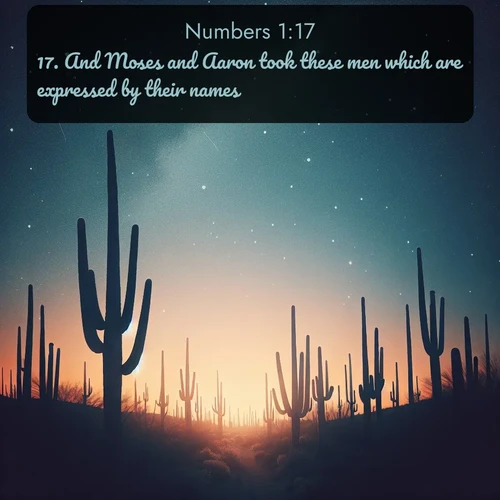Numbers 1:17 plusieurs versions / traductions
English Bible Translations
German Bible Translations
French Bible Translations
17. Moïse et Aaron prirent comme adjoints les hommes qui avaient été nommément désignés,
17. Moïse et Aaron prirent ces hommes, qui avaient été désignés par leurs noms,
17. Moïse et Aaron prirent ces hommes, qui avaient été désignés par leurs noms,
17. Et Moïse et Aaron prirent ces hommes-là, qui avaient été désignés par leurs noms,
17. Alors Moïse et Aaron prirent ces hommes-là qui avaient été nommés par leurs noms;
17. Moïse et Aaron prirent donc ces hommes qui avaient été désignés par leurs noms;
Versions with Strong Codes
Numbers 1 / KJV_Strong17. And Moses[H4872] and Aaron[H175] took[H3947] [H853] these[H428] men[H376] which[H834] are expressed[H5344] by their names: [H8034]
Strong Code definitions
H4872 Mosheh mo-sheh' from H4871; drawing out (of the water), i.e. rescued; Mosheh, the Israelite lawgiver:--Moses.see H4871
H175 'Aharown a-har-one' of uncertain derivation; Aharon, the brother of Moses:--Aaron.
H3947 laqach law-kakh' a primitive root; to take (in the widest variety of applications):--accept, bring, buy, carry away, drawn, fetch, get, infold, X many, mingle, place, receive(-ing), reserve, seize, send for, take (away, -ing, up), use, win.
H853 'eth ayth apparent contracted from H226 in the demonstrative sense of entity; properly, self (but generally used to point out more definitely the object of a verb or preposition, even or namely):--(as such unrepresented in English). see H226
H428 'el-leh ale'-leh prolonged from H411; these or those:--an- (the) other; one sort, so, some, such, them, these (same), they, this, those, thus, which, who(-m).see H411
H376 'iysh eesh contracted for H582 (or perhaps rather from an unused root meaning to be extant); a man as an individual or a male person; often used as an adjunct to a more definite term (and in such cases frequently not expressed intranslation):--also, another, any (man), a certain, + champion, consent, each, every (one), fellow, (foot-,husband-)man, (good-, great, mighty) man, he, high (degree), him (that is), husband, man(-kind), + none, one, people, person, + steward, what (man) soever, whoso(-ever), worthy. Compare 802.see H582 see H802
H834 'aher ash-er' a primitive relative pronoun (of every gender and number); who, which, what, that; also (as an adverb and a conjunction) when, where, how, because, in order that, etc.:--X after, X alike, as (soon as), because, X every, for, + forasmuch, + from whence, + how(-soever), X if, (so) that ((thing) which, wherein), X though, + until, + whatsoever, when, where(+ -as, -in, -of, -on, -soever, -with), which, whilst, + whither(- soever), who(-m, -soever, -se). As it isindeclinable, it is often accompanied by the personal pronoun expletively, used to show the connection.
H5344 naqab naw-kab' a primitive root; to puncture, literally (to perforate, with more or less violence) or figuratively (to specify, designate, libel):--appoint, blaspheme, bore, curse, express, with holes, name, pierce, strike through.
H8034 shem shame a primitive word (perhaps rather from H7760 through the idea of definite and conspicuous position; compare 8064); an appellation, as a mark or memorial of individuality; by implication honor, authority, character:--+ base,(in-)fame(-ous), named(-d), renown, report. see H7760see H8064
Prédications qui analysent les thèmes Nombres 1
Thèmes : Recensement des Israélites; Organisation des camps; Règles du parcoursRelated Sermons discussing Numbers 1
Themes : Recensement des Israélites; Organisation des camps; Règles du parcourssee also: Bible Key Verses ; KJV Bible Images, BBE Bible images

